

Tao Te Ching

Sandro Botticelli, 1486
Basic Goodness
During the hunter-gatherer stage of civilization’s evolution, the men were seldom at home, goddesses were worshipped, children belonged to their mothers, and matriarchy prevailed. When agriculture became dominant, biology’s choice became the male who was physically stronger and more adept at fighting to protect the home where men began to stay. For men to take over, the feminine principle needed to be degraded and the myth of Eve eating the devil’s apple, ensnaring men, and causing expulsion from paradise was born. An unfortunate collateral damage from this process was “Basic Badness” replacing the previous attitude of “Basic Goodness” in the Judeo-Christian-Muslim traditions. The assumption that people are deeply and sinfully flawed justifies the despotic positions of political, cultural, and religious leaders as well as genocide, imperialism, racism, and misogyny. Because so deeply flawed, humans need priests-imams-rabbis-gurus to tell them what they should believe; tyrannical politicians to control their external lives; and cultural icons telling them how to experience their personal lives.
A foundation in Basic Goodness contrarily builds a foundation for democracy, personal choice, and individual liberation. The main Eastern Traditions—Buddhism, Confucianism, Taoism, Hinduism—all start from this premise, that humans are basically good. When this attitude came into Western Civilization, it became the bedrock for the Enlightenment, Humanism, Science, and the Age of Reason.
Rousseau took this idea to an extreme describing agriculture and technology for "ruining humanity" (On the Origin of Inequality) and separate, personal property as the foundation and cause of war, murder, and the major cause of the majority of human suffering. This argument—although easily refuted by the long list of innovations that have made human life longer, less painful, and more comfortable—has its own deep truth that sees through the seductions of consumerism, the soul-selling of the many versions of materialism, and nurtures artistic, social, and political creativity.
Quotes (87)

“When you stop trying to be kind and just, you will discover basic goodness.”

“When impressed by an image of goodness, we create badness. If this becomes good, that becomes bad.”
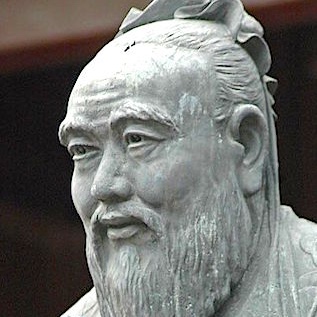
“If you look into your own heart, and you find nothing wrong there, what is there to worry about? What is there to fear?”

“No intelligent man believes that anybody ever willing errs or willingly does base and evil deeds.”
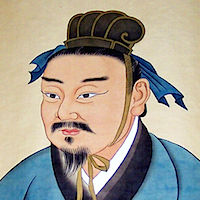
“The sage honors his inborn, basic goodness rising in influence when sanity reigns in society; enduring protected by silence when the Way does not prevail.”

“The way of great learning is keeping clear our original, clear, basic goodness.”

“The Tao is the way things are which you can't depart from even for one instant.”
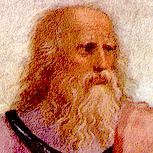
“In the world of knowledge the idea of good appears last of all, and is seen...to be the universal author of all things beautiful and right”
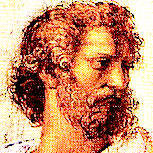
“Every art and every inquiry, and similarly every action and pursuit, is thought to aim at some good, and for this reason the good has rightly been declared to be that at which all things aim.”

“All people have a mind-and-heart that cannot bear to see the suffering of others... to be without compassion is not to be human.”

“All things are good and acceptable. That is why all things – a blade of grass or a hundred-foot pine, a leper or a legendary beauty, a national hero or a traitor – are equal in the Tao.”
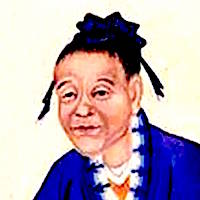
“It is the function of the historian to prolong the memory of goodness by preserving its record for all ages to see.”
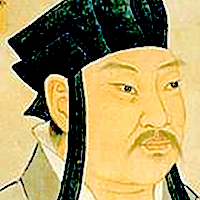
“If our deeds don’t influence others, we should look into ourselves and cultivate a greater goodness.”

“If you bring forth what is within you, what you bring forth will save you. If you do not bring forth what is within you, what you do not bring forth will destroy you.”

“the kingdom is inside of you, and it is outside of you. When you come to know yourselves, you will realize that it is you who are the sons of the living father. But if you will not know yourselves, you dwell in poverty.”
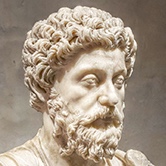
“Dig within. Within is the wellspring of Good; and it is always ready to bubble up, if you just dig.”

“It is called, ‘consummation of incomparable enlightenment.’ attained by freedom from separate personal selfhood and by cultivating all kinds of goodness… though there is no goodness; such is merely a name.”
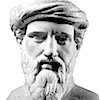
“Withdraw into yourself and look. If you do not find yourself beautiful, act as does the creator of a statue who cuts away here, smooths there, makes this line lighter, the other purer until a lovely face has grown upon his work... never cease chiseling your statue until you see the perfect goodness established in the stainless shrine.”

“‘Good’ refers to our original nature before our parents were born. Before anything develops within us, we possess this goodness. ‘Good’ means natural.”

“essence is either originally good—if looked at from the standpoint of the eternal idea (Mencius), or it is originally evil, or at least neutral—if taken from the standpoint of empirical evolution (Xun Kuang)—and has to be made into something good by a long development of custom.”
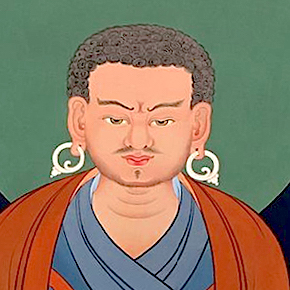
“The three worlds are primordially pure,
Ultimately, there is nothing more to understand.”

“Humanity, take a good look at yourself. Inside, you’ve got heaven and earth, and all of creation. You’re a world—everything is hidden in you.”
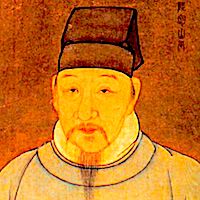
“The mind is morally self-sufficient, endowed with innate knowledge of the good, and an innate ability to do good. It is one and indissoluble. It fills the whole universe… The investigation of things means nothing more than to investigate this mind.”
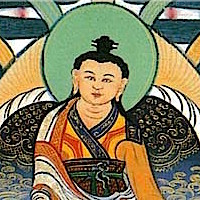
“Everything is subsumed within all-inclusive awakened mind... the true nature of all phenomena is that of awakened mind”

“all is perfect—without being made so, everything is perfect. Naturally occurring timeless awareness is by nature spontaneously perfect.”
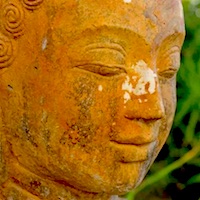
“Buddha Nature, the Self of all beings, is the simple Truth. From Buddhas to insects, it is the seer, hearer, and mover.”

“Though man is not an immortal animal, like the universe, he is nonetheless reasonable, and with his intelligence, his imagination and his soul, he can act upon and transform the whole world.”

“The Tao is in us all. Though good and bad might differ, our nature is the same. How then, can we abandon anyone?”

“How beauteous mankind is! O brave new world that hath such people in it!”
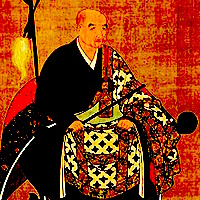
“The moon’s the same old moon, the flowers exactly as they were;
Yet I’ve become the thingness of all the things I see!”
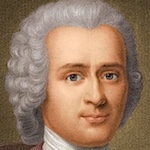
“Man was a 'noble savage' when in the state of nature, before the creation of civilization. He has been corrupted by the social interdependence of society.”

“The function of the true State is to impose the minimum restrictions and safeguard the maximum liberties of the people, and it never regards the person as a thing.”
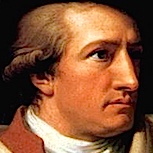
“The way you see people is the way you treat them and the way you treat them is what they become.”

“Surely something resides in this heart that is not perishable - and life is more than a dream.”

“Luminosity is the nature of one's mind that aeons of confusion cannot darken.”

“secretly conscious in the profoundest depths of our being that we share in the inexhaustible well of eternity, out of which we can for ever draw new life and renewed time.”
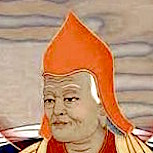
“The primordial purity of the ground completely transcends words, concepts, and formulations.”
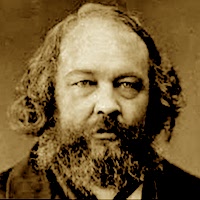
“Both [Church and State] have the same principle as their point of departure: that of the natural wickedness of man... Both strive to transform men, the one into a saint, the other into a citizen. But the natural man must die.”

“I believe that people are almost always better than their neighbors think they are.”
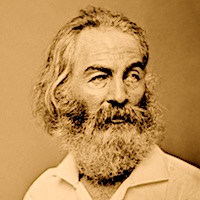
“I know nothing more rare than a reverent appreciation of the People—of their measureless wealth of latent worth and capacity, their vast, artistic contrasts of lights and shades... far surpassing all the vaunted samples of book-heroes in all the records of the world.”
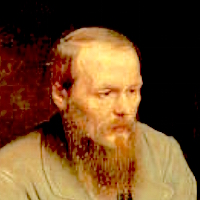 “Life is paradise, and we are all in paradise, but we refuse to see it.”
“Life is paradise, and we are all in paradise, but we refuse to see it.” 
“All I care to know is that a man is a human being—that is enough for me; he can't be any worse.”
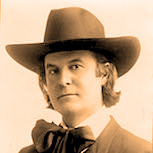
“God looked upon His work and saw that it was good. That is where the clergy take issue with Him.”

“the historical truth that man is by nature oppressor and oppressed, and that it is only slowly by law, education, and the spirit of love in the world that men can be made happy and free.”

“My experiences with human beings, too had taught me anything rather than a belief in man's original goodness and decency... On the other hand, man and the proper animals were bits of God that had become independent.”
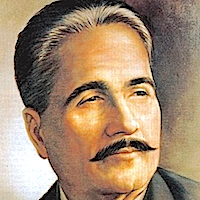
“Create an ocean from a dewdrop. Do not beg for light from the moon, obtain it from the spark within you.”

“The most important decision we make is whether we believe we live in a friendly or hostile universe.”
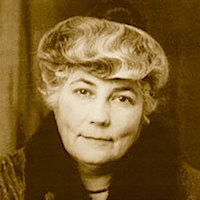
“The law of the dignity of human personality beyond castes and outer distinctions creates a continuous rainbow of joy for humanity.”

“that which is boundless in you abides in the mansion of the sky, whose door is the morning mist, and whose windows are the songs and the silences of night.”
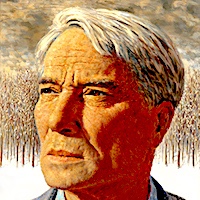
“What has for centuries raised man above the beast is not the cudgel but an inward music: the irresistible power of unarmed truth, the powerful attraction of its example.”
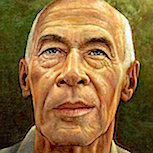
“We all derive from the same source… We are all part of creation, all kings, all poets, all musicians; we have only to open up, only to discover what is already there.”

“When I reflect that one man was able to bring forth out of the desert this land of Canaan, I can't help feeling the human condition in general is admirable, in spite of everything.”
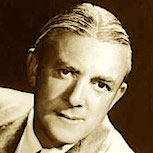
“If we have not found the heaven within, we have not found the heaven without.”
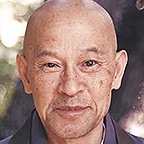
“So to be a human being is to be a Buddha… the most important thing is to express your true nature in the simplest, most adequate way and to appreciate it in the smallest existence.”

“In the depth of winter, I finally learned that within me there lay an invincible summer.”
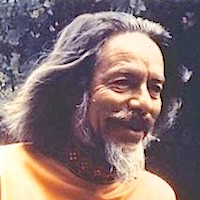
“As the Chinese Taoists have seen, there is really no alternative to trusting man's nature. It is the most practical of practical politics.”
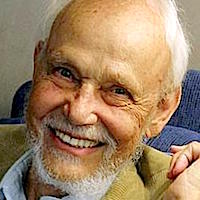
“Having been created in the image God, all human beings have a God-shaped vacuum built into their hearts. Since nature abhors a vacuum, people keep trying to fill the one inside them.”

“Give people what they need: food, medicine, clean air, pure water, trees and grass, pleasant homes to live in, some hours of work, more hours of leisure. Don't ask who deserves it. Every human being deserves it”

“We are actually fourth dimensional beings in a third dimensional body inhabiting a second dimensional world!”
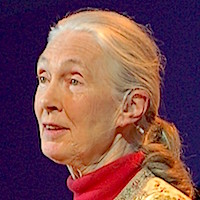
“Every individual matters. Every individual has a role to play. Every individual makes a difference.”
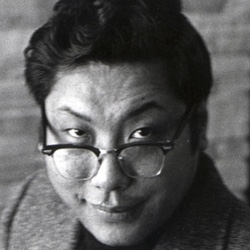
“The result of letting go is that you discover a bank of self-existing energy that is always available to you – beyond any circumstance. It actually comes from nowhere, but is always there. It is the energy of basic goodness.”

“When you meet a person with authentic presence, you find he has an overwhelming genuineness, which might be somewhat frightening because it is so true and honest and real. You experience a sense of command radiating from the person of inner authentic presence. Although that person might be a garbage collector or a taxi driver, still he or she has an uplifted quality, which magnetizes you and commands your attention. This is not just charisma.”

“when we say that human beings are basically good, we mean that they have every faculty they need, so that they don’t have to fight with their world.”

“The key to warriorship and the first principle of Shambhala vision is not being afraid of who you are… If we are willing to take an unbiased look, we will find that, in spite of all our problems and confusion, all our emotional and psychological ups and downs, there is something basically good about our existence.”

“Before any kind of perception occurs, wakefulness is already thre—beyond concept, beyond limitation, beyond anything measurable.”

“They did not tell us that we were born as whole, and that no-one in our lives deserve to carry on his back such responsibility of completing what is missing on us: we grow through life by ourselves. If we have a good company it’s just more pleasant.”

“You special, miraculous, unrepeatable, fragile, fearful, tender, lost, sparkling ruby emerald jewel, rainbow splendor person.”

“No matter who you are, no matter where you come from, you are beautiful.”
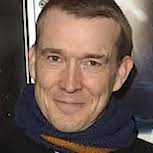
“Your life amounted to no more than one drop in a limitless ocean… yet what is any ocean but a multitude of drops.”
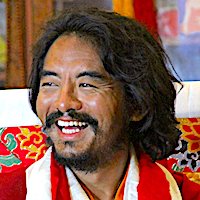
“Meditation is about learning to recognize our basic goodness in the immediacy of the present moment, and then nurturing this recognition until it seeps into the very core of our being”
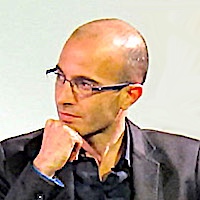
“Morality, art, spirituality, and creativity are universal human abilities embedded in our DNA. Their genesis was in Stone Age Africa. It is therefore crass egotism to ascribe to them a more recent place and time, be it China in the age of the Yellow Emperor, Greece in the age of Plato, or Arabia in the age of Muhammad.”


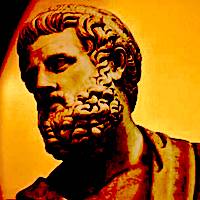

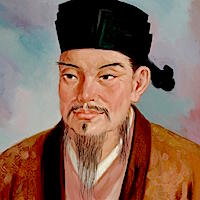

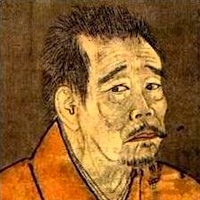



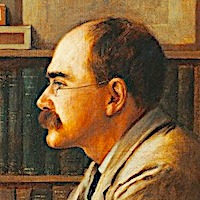


Comments (0)